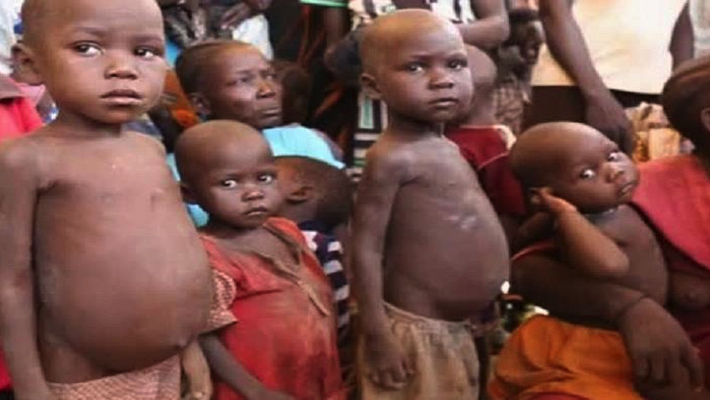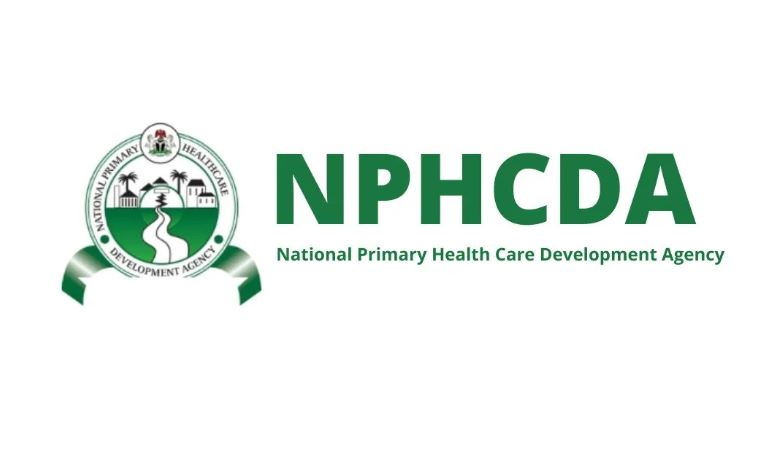Health
Lassa fever: No health worker infected in reporting week 52 – NCDC
The Nigeria Centre for Disease Control and Prevention (NCDC) says no new healthcare worker is infected in the reporting week 52, of the Lassa Fever in the country.
The NCDC via its official website, on Saturday, said the 52nd-week report from Dec. 26 to Jan. 1, showed that the country’s suspected cases of Lassa fever were 8,202.
It said, while there were no reported cases for health workers in the reporting week, about 63 healthcare workers were infected by the disease in the country.
The public health agency said that the country’s confirmed cases for 2022 now stood at 1,067, spread across 112 Local Government Areas and 27 states of the Federation.
It said that the death toll from the Lassa fever outbreak in the country also stood at 189.
It, however, said that the suspected cases were 8,202.
“In week 52, the number of new confirmed cases decreased from 17 in week 51, 2022, to 12 cases. These were reported from Edo, Ebonyi and Benue.
“Cumulatively from week one to week 52, 2022, 189 deaths have been reported with a case fatality rate of 17.7 per cent which is lower than the CFR for the same period in 2021 (20.0 per cent).
“Seventy-two per cent of all confirmed Lassa fever cases were reported from these three states (Ondo, Edo and Bauchi) while 23 per cent were reported from 24 states with confirmed Lassa fever cases.
“Of the 72 per cent of confirmed cases, Ondo state reported 33 per cent, Edo 25 per cent, and Bauchi 14 per cent.
“The predominant age group affected is 21-30 years (Range: 1 to 90 years, Median Age: 30 years). The male-to-female ratio for confirmed cases is 1:0.8.
“The number of suspected cases has increased compared to that reported for the same period in 2021,” it explained.
The NCDC said the national Lassa fever multi-partner, multi-sectoral Technical Working Group continued to coordinate the response activities at all levels.
The News Agency of Nigeria (NAN) reports that the Lassa virus is transmitted to man by infected multi-mammate rats and humans become infected from direct contact with the urine and faeces of the rat carrying the virus.
People also contract the disease by touching soiled objects, eating contaminated food, or exposure to open cuts or sores.
Secondary transmission from person to person can also occur as a result of exposure to the virus in the blood, tissue, urine, faeces or other bodily secretions of an infected patient.
Lassa fever can also be passed between patients and staff at poorly equipped hospitals where sterilisation and protective clothing are not standard.
Meanwhile, a new vaccine shows promise to fight the Lassa virus. Researchers at the University of Texas Medical Branch have achieved success with a new vaccine developed to fight Lassa Virus, a pathogen that causes Lassa fever.
Lassa fever is lethal in humans and nonhuman primates with a mortality rate as high as 70 per cent in hospitalised cases.
As many as 500,000 people are infected each year in West Africa. Lassa fever may also induce serious long-lasting effects in survivors.
As many as one-third of those infected suffer hearing loss or other neurological complications.
The study, “A recombinant VSV-vectored vaccine rapidly protects nonhuman primates against heterologous lethal Lassa fever,” was published on July 19, 2022, in Cell Reports.
Health
UNICEF emphasises importance of polio vaccination to caregivers


The United Nations Children’s Fund (UNICEF) has encouraged caregivers in Katsina, Kano and Jigawa States to present their eligible children for the next round of polio vaccination exercise.
Mr Michael Banda, the Officer-in-charge of UNICEF Kano Field Office, made the call in Kano at a media dialogue on the polio campaign on Friday.
The media dialogue was organised by UNICEF in collaboration with the Kano State Primary Healthcare Development Agency, with participants from the above-mentioned states.
The News Agency of Nigeria (NAN) reports that the four-day polio vaccination exercise is scheduled to commence on April 20, across the three states.
According to the UNICEF Officer-in-charge of the Kano field office, the importance of the exercise cannot be overemphasised.
“As the data show, in Kano, Jigawa and Katsina, we have over 556,750 children who have not received one single dose of vaccination they should have received.
“These are referred to as zero-dose children. Such children inexorably are vulnerable to vaccine-preventable diseases, including poliomyelitis.
“This is unacceptable and must be tackled frontally. Not only is polio vaccination crucial, but all routine vaccinations are also critical to children’s survival.
“We must all work together to strengthen routine immunisation services and ensure that all children under five receive all vaccines, including the polio vaccine,” Banda said.
He added that, if all children got vaccinated and receive the vaccines they needed to receive, they would no longer be at risk of contracting polio, with attendant debilitating consequences.
He said that, rather they would have received the immunity which would protect them against vaccine-preventable diseases.
Banda emphasised that immunisation had been proven to be the most cost-effective protection against vaccine-preventable diseases.
“Let’s all work together, government, development partners, religious and traditional leaders, communities, NGOs, CSOs and the media, to ensure that every Nigerian child under five is vaccinated.
“This will protect them from not just polio, but all other vaccine-preventable diseases,” he appealed.
According to the UNICEF official, managing misinformation and vaccine hesitancy for Polio and overall vaccination is very crucial in Nigeria to stop the outbreak.
He stressed that the role of the media, including social media, was important in this aspect.
Health
Over 1,800 malnourished kids recovered in six months in Bauchi — CSOs


Rauf Oyewole, Bauchi
The Coalition of Civil Society –Scaling Up Nutrition in Nigeria, Bauchi State Chapter has said that through its partnership with other implementing partners they have assisted over 1,800 malnourished children to recover from Severe Acute Malnutrition (SAM).
The Secretary of the Network, Dabis Mwalike while addressing journalists as part of the activities marking the 10th year anniversary of the network, said that it also engaged in preventive measures against malnutrition in the state.
According to her, during the implementation, 698 healthcare providers were trained across the 20 local government areas of Bauchi, 400 community-based volunteers were trained while 4,229 comprising 2,059 males and 2,170 females, children under five identified with SAM and 7,743 made of 3661males and 4082 females, children under five identified with Moderate Acute Malnutrition (MAM).
She added that 1,825 children under five identified with SAM and MAM recovered. While 202 PHCs established food banks.
She said that despite all the achievements, malnutrition remains a concern to public health and a threat to child survival, growth, and development in the country, and Bauchi State according to NNHS (2018) and NDHS (2018) the State stunting rate is 46 percent, wasting is 9.5 percent while underweight is 28.2 percent and overweight is 0.5 percent.
Health
Capacity training will reduce migration of health workers- NPHCDA


-
Finance3 months ago
Court orders Sen. Victor Umeh to repay N136m bank debt to AMCON
-



 Abuja Update2 months ago
Abuja Update2 months agoUNDP, FG partnership needed to achieve inclusion, equity- Minister
-
Abuja Update4 weeks ago
Banks drive stock market performance with N147bn gain
-



 Infotech3 weeks ago
Infotech3 weeks agoWorld Backup Day: NITDA urges Nigerians to ensure backup of data
-
capital market2 years ago
Rt.briscoe, FBNH, Others halts negative performance of stock market
-



 Health2 weeks ago
Health2 weeks agoImmunisation: FG, GAVI seek synergy with Sokoto Govt.
-
Infotech2 weeks ago
Forex for Beginners: Unveiling the currency exchange and how to trade it
-
Submission Guidelines4 months ago
CALL FOR SUBMISSIONS: POETRY COLUMN-NND










